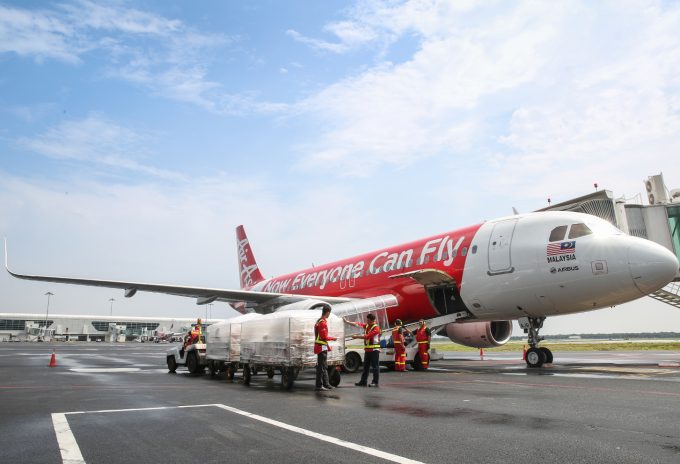Magma expands to Dubai with two freighters, as ASG keeps growing
Magma Aviation, the Avia Solutions Group-owned airline, has expanded with a new base and two ...
TFII: SOLID AS USUALMAERSK: WEAKENINGF: FALLING OFF A CLIFFAAPL: 'BOTTLENECK IN MAINLAND CHINA'AAPL: CHINA TRENDSDHL: GROWTH CAPEXR: ANOTHER SOLID DELIVERYMFT: HERE COMES THE FALLDSV: LOOK AT SCHENKER PERFORMANCEUPS: A WAVE OF DOWNGRADES DSV: BARGAIN BINKNX: EARNINGS OUTODFL: RISING AND FALLING AND THEN RISING
TFII: SOLID AS USUALMAERSK: WEAKENINGF: FALLING OFF A CLIFFAAPL: 'BOTTLENECK IN MAINLAND CHINA'AAPL: CHINA TRENDSDHL: GROWTH CAPEXR: ANOTHER SOLID DELIVERYMFT: HERE COMES THE FALLDSV: LOOK AT SCHENKER PERFORMANCEUPS: A WAVE OF DOWNGRADES DSV: BARGAIN BINKNX: EARNINGS OUTODFL: RISING AND FALLING AND THEN RISING

Malaysia’s Airasia has made a bold step into the freighter market with the purchase of its first 737-800F.
The airline has also bought two newly converted A320s with passenger seats removed, boosting each aircraft’s cargo capacity by 30%. Airasia now has a fleet of eight passenger aircraft dedicated to all-cargo flights, operated by logistics unit Teleport.
The 737 freighter will be based at Teleport’s Bangkok hub, flying routes between China, India and South-east Asia, while the A320s will operate from both Bangkok and Kuala Lumpur to Hanoi, Ho Chi Minh City, Hong Kong, Jakarta and Yangon.
Adrian Loretz, chief operating officer of Teleport, said: “It was evident at the end of last year that the demand for cargo capacity was not going to be served with passenger belly capacity alone, in the long run.
“The type of planes we are using are great to handle the current surge in demand for e-commerce and other cargo.”
Indeed, Mr Loretz told The Loadstar, the newly minted freighter operator had also seen an uptick in demand following the recent sea freight delays.
“Customers did request additional space on our aircraft to ensure access to cargo capacity, and while this was only a temporary movement, we expect demand will remain at high levels across most tradelanes, and yields are significantly above 2019 levels,” he explained.
Teleport’s “home markets” are Malaysia, Thailand, Indonesia and the Philippines, Mr Loretz noted, with the network expanding across Asia Pacific via connecting flights to Japan and Australia, for example.
He said the e-commerce growth was centred in the Asean region, with a lot of cargo coming in from China, Japan and Korea. Teleport is also supporting Airasia’s various e-commerce apps, he added, as it “aggressively expands across the region.”
However, Mr Loretz said the airline’s core business was general cargo, particularly perishables and pharmaceuticals, which remain a “key contributor for our export tonnage”.
Meanwhile, with freight rates “clearly above 2019 levels,” Mr Loretz sees a bright future for the growing cargo operation.
“For some of our markets, it remains uncertain when significant passenger capacity will come back. We are optimistic that, even when passenger air travel rebounds, there will be a sustained demand for cargo capacity, either from passenger aircraft used for cargo flights or dedicated freighter space,” he said.
Comment on this article